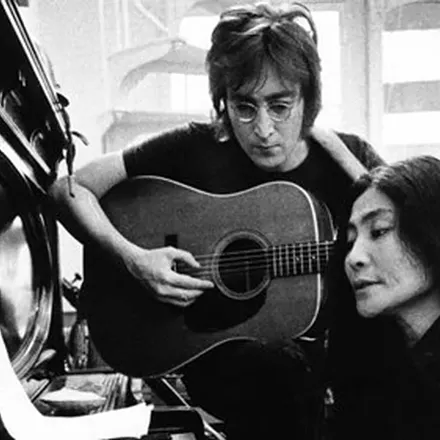
- Paramount Pictures
More than 35 years ago, in the original Top Gun, Tom Cruise did something that almost never happens anymore: He became a Movie Star. While he certainly had made an impression on screen previously, with successful movies like Risky Business, there's a difference between being a presence and being a Movie Star; Julia Roberts was already up for her first Oscar on the same weekend that Pretty Woman opened, but it was the latter that took her to the next level. Yes, Top Gun was a savvy bit of gung-ho pro-military porn for the Reagan years, but it was also a star vehicle. It's not the plane that mattered; it was the pilot.
That phrase gets used a lot in Top Gun: Maverick, and it's hard not to see it as a meta-commentary on the way movies have changed since 1986. In an era when franchises have become the stars, it's decidedly retro to see a summer blockbuster built around real hardware, and a real movie-star personality. And as easy as it would have been for Top Gun: Maverick to rely entirely on nostalgia for its impact, this is a movie that works because it reminds you what it was like when big movies felt physical, rather than merely digital. When a hard-nosed admiral (Ed Harris) promotes the value of human-free drone warfare by telling Cruise's veteran Navy pilot Capt. Pete "Maverick" Mitchell, "The future is coming, and you're not in it," it's hard not to look at the entire narrative that follows as a response by the actor of, "Oh, yeah?"
The central narrative certainly has a legacy component to it, linked to Maverick's ongoing guilt over the death in the original film of his buddy and wingman, Goose (Anthony Edwards). Goose's son, Rooster (Miles Teller) is part of the all-star team of Top Gun graduates brought back to be considered for a crucial mission involving bombing a uranium-enrichment facility in a "rogue state" (it's definitely part of Top Gun: Maverick's existence in the movie-industry's global present that nobody risks identifying a specific nation as a villain). Maverick gets the assignment of preparing his young charges for the unique dangers of this mission, while resentment lingers between him and Rooster over Maverick's attempts to keep Rooster from his dad's fate.
It's a bit of a bold gambit that the script—attributed to five writers, including Cruise's frequent Mission: Impossible collaborator Christopher McQuarrie—leans into new relationships rather than legacy relationships. In addition to the surrogate-father stuff with Rooster, Maverick gets a new-to-us/not-new-to-him romantic connection with an old flame, Penny (Jennifer Connelly), rather than bringing back Kelly McGillis. We do get an on-screen reunion between Maverick and Iceman (Val Kilmer), the latter now an admiral and Maverick's long-time advocate, and it's one that handles Kilmer's health-related limited physical capacities with dignity. While Top Gun: Maverick isn't above a few obvious callbacks to its predecessor—including trading in Top Gun's legendary/infamous shirtless volleyball for a little shirtless football—some of them are more valedictory than designed for whoop-it-up audience response. The opening scenes of jet action on a carrier deck, set to Kenny Loggins' "Danger Zone" and shot in the burnished oranges of late Top Gun director Tony Scott, slowly fades out rather than building to a big punch.
Instead, you get that big punch from the airborne action, and it's thrilling in a way we just don't get to experience very much anymore. Director Joseph Kosinski (Cruise's Oblivion) choreographs all the high-speed training runs, vertiginous dives and dangerous dogfights with energy and precision, optimized for the biggest possible screen. It's easy to forget that even a lot of hugely-successful recent movies feel built to be endlessly re-watched on streaming services; Top Gun: Maverick feels like a movie that everyone involved was determined to make a gotdam, watch-it-in-a-theater movie, rather than just "content."
It is, of course, also a showcase for Cruise, a little time-worn but somehow still ageless when he throws on a bomber jacket and flashes that megawatt smile. He's certainly become a more capable actor over the years, and while Maverick doesn't always take advantage of the unique possibilities of a story built around an aging character who still defines himself as a rebel, Cruise is solid at capturing the accumulated weight of some of Maverick's past decisions. He remembers the past with regret; the thoroughly entertaining movie constructed around him has a considerably more enthusiastic feeling about a time when planes were real planes, and movie stars were real Movie Stars.





